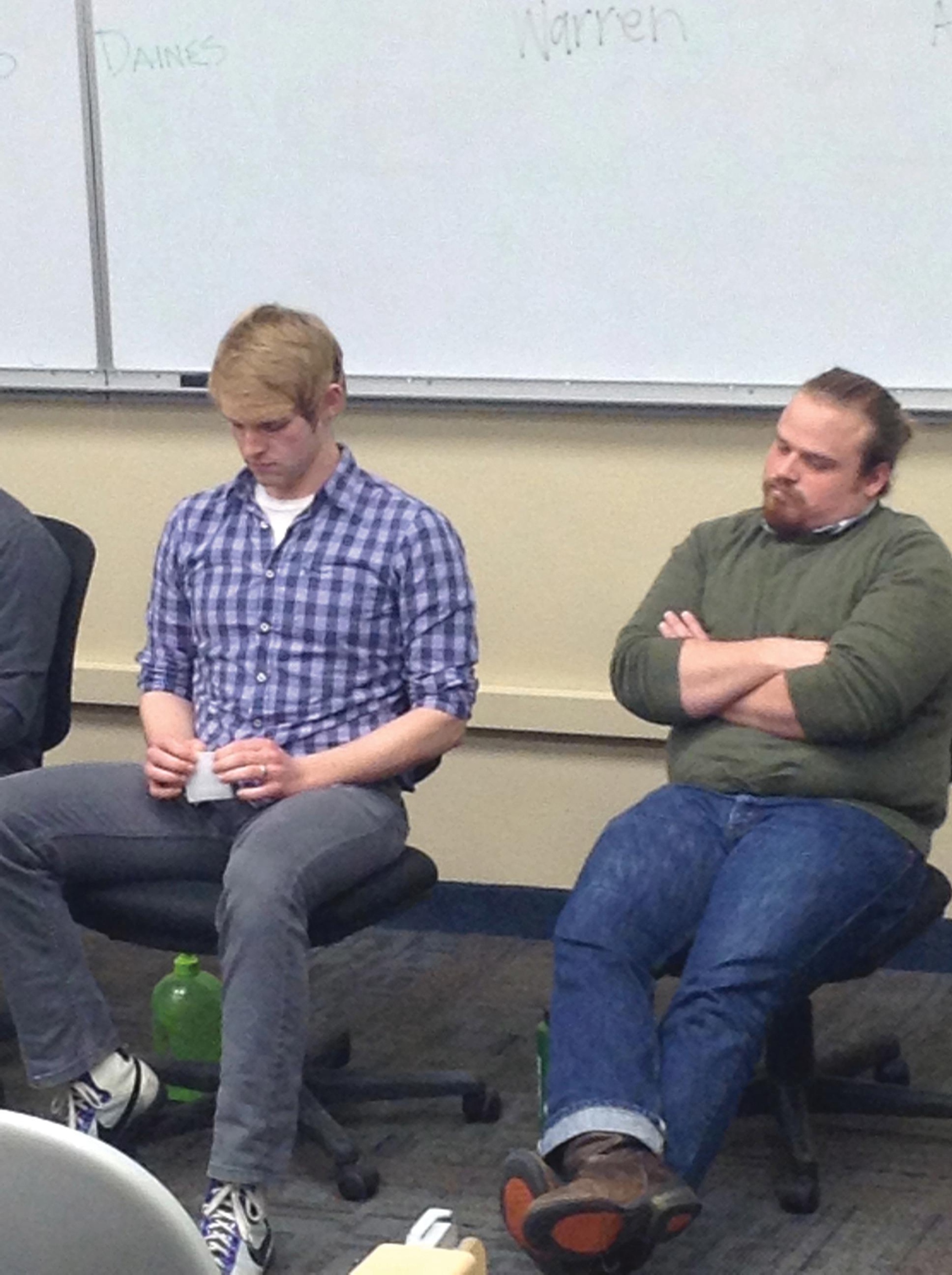Post-Mormons address life after the LDS church
Acceptance and understanding – two human liberties sought after by most USU students and members of the Cache Valley community- were the topics discussed during a panel question-and-answer session put on by the USU Post-Mormons and USU LIFE – Love Is For Everyone. These campus organizations held the panel to discuss life after leaving the Church of Jesus Christ of Latter-day Saints, a situation many students in Logan deal with on a daily basis.
“That particular topic is difficult for many of us to even speak of,” said Nick Virgil, one of the event’s organizers and a panelist.
Virgil said the USU Post-Mormons organization decided to interview and choose USU students to share their experiences that lead them to leave the LDS faith, as well as the incidents and choices that helped them make their life-changing decisions.
“These are not the best stories,” Virgil said. “These are experiences that we felt were worth sharing to the public.”
As the discussion began, Virgil advised the audience to keep the conversation flowing through civil questioning.
“I ask folks to be polite with questions,” Virgil said. “Don’t be attacking the individual – that won’t be tolerated. Attacks against any religious group will also not be tolerated.”
Panelist Adison Pace grew up in the Salt Lake area. He said he went through the first two decades of his life as a strong member of the Mormon church, serving a two-year mission in the Dominican Republic. Pace, an openly gay member of the USU community, said he had long battled with hiding his homosexuality before his mission, and upon returning home, he decided to leave the church.
“In my process of coming out, I decided to no longer attend LDS meetings,” he said. “I found for my emotional health that it was a lot healthier for me, and I’ve been a lot happier outside of it.”
David Daines, another panelist, said he left the LDS church 11 months after returning home from his mission. He said the writings and thoughts of Eckhart Tolle, a German philosopher, helped him to open his mind and see the world around him differently.
“I decided to take a look at the religion I was in without this screen before my eyes, as if I was someone who had never learned about Mormonism,” said Daines, adding that he found the things he was taught about the religion while growing up didn’t coincide with historical and scientific fact. “After that happened, I took that same look at the Bible and at religion in general, and that lead me to where I’m at right now as an atheist.”
Warren Bailey, a gay USU student who recently wed, said the faith’s objection to same-sex relationships always made him feel as if he didn’t belong.
“I just realized that there are certain parts of the church and the gospel that they teach that I didn’t agree with, and I didn’t want to be a part of that anymore,” he said.
Bailey said while he had grown up a part of the LDS faith and met many wonderful church members in his youth, he began to distance himself from the religion when he started feeling as if the LDS church was set around a “conditional membership.”
“I don’t believe that you should have to conform to certain precepts to be a part of an organization,” he said.
Bailey said he saw many people within the church “ignoring and not paying attention to” the teachings kindness and acceptance within the gospel. Ultimately, he said, this was one of the main factors that drove him away from the church.
The USU Post-Mormon group’s intent is often misinterpreted by members of the USU student body who think the organization is very anti-LDS, Virgil said, but “it’s quite the opposite.” He said anyone is welcome to come to the group’s meetings – called “Heathen Sunday” and held every Sunday afternoon at the Quadside Cafe – and take part in discussion and conversation.
“We have had a lot of individuals come who are very active LDS members, and we’ve also had members who come that are thinking about leaving the church,” Virgil said. “The amazing thing about the group of individuals that I’ve met at these Sunday meetings is that no one encourages anyone to leave – that is a personal choice that you make.”
The last thing the Post-Mormon group wants to do is put individuals through the difficulties associated with leaving the LDS faith, Virgil said, but the group is designed to be a support to those who make that choice.
The panel members said they all lost personal relationships and the sense of community associated with being a member of the LDS faith, but Panelist Ammon Hansen noted students from all different faiths shouldn’t be too quick to judge people who are different from them.
“I know a lot of really, really wonderful Mormons that go to USU,” Hansen said. “I think it’s really easy to kind of hit fire and write people off because they are Mormon. But we want people to get to know us, as non-Mormons, because of who we are underneath. We should give LDS people that same opportunity. Don’t automatically think that because someone’s LDS they won’t be your friend.”
The USU Post-Mormons plan to hold two more panel discussions in the spring. Virgil said the group hopes to involve the USU LGBTQA community and the Center for Women and Gender in the upcoming panels.

